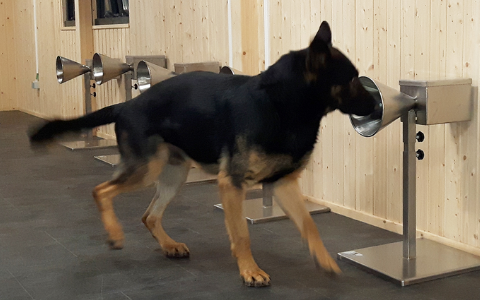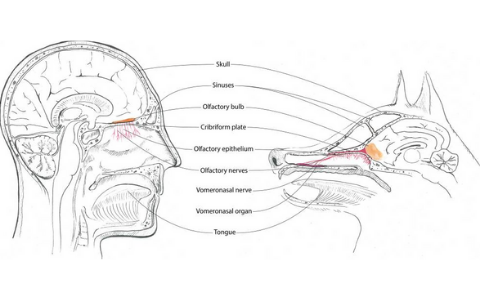No Products in the Cart
Is it True That Dogs Have a Sixth Sense?

Many different images come to mind when we talk about a sixth sense. Some of us might immediately jump to a scene from the famous eponymous movie "The Sixth Sense" with Bruce Willis - a phenomenal movie for those who have yet to watch it!
But stay assured that we are not about to tell you that dogs can talk with people who have passed away.
But do dogs have a sixth sense?
Suppose you research this term in the Oxford dictionary. In that case, you will read the following definition: "a supposed intuitive faculty giving awareness not explicable in terms of normal perception." Indeed, when we use the term "sixth sense," we often allude to extra-sensory abilities and the ability to detect things ordinary people can't see/smell/feel/touch/hear.
We can answer YES to the previous question with this definition because dogs can detect things that we humans can't.
What is the sixth sense of dogs?
Recently dogs have demonstrated the power of their "sixth sense" by helping us detect COVID-19 in people. Indeed Dogs can tell if someone has COVID-19 or not.
Studies have shown that dogs could detect COVID-19 with better accuracy and faster than PCR tests. For example, in this recent study, a dog's true positive (positive test with a positive person) rate was between 87% and 94%.

Of course, you probably realize that dogs don't have a true sixth sense.
Instead, their incredible sense of smell allows them to detect COVID 19 in people.
The way dogs can smell COVID-19 is indirectly by smelling a piece of cloth with sweat from a person, not by smelling COVID-19 directly in a person's blood.
Also Read - Best Joint Supplement for Corgis
What else can dogs detect?
Although their ability to detect COVID-19 is one of the most impressive applications of a dog's talents, it is not the only one! For example, you probably spotted cut dogs in airports when passing security if you've flown anywhere. Dogs help detect drugs, animals and plants trafficking, and explosive materials.
Our beloved friends also help us detect other diseases than COVID. A 2021 scientific review revealed that over 20 studies exist on dogs and disease detection.
They mainly were positives and reported that dogs could detect :
- many cancers (prostate, colon, ovarian, lung, breast, and bones cancers)
- hypoglycemia (for diabetes)
- bacterial infections (Clostridium difficile)
- epileptic seizures
You might wonder why we don't use dogs more often to detect all these common diseases? According to this previous study, the main reason is the need for specific guidelines and training. Also, this study noted a lack of consistency in the results. So, although early dog detection could help, it would not replace traditional testing methods. Instead, these two methods could have interesting synergies for prevention and early diagnosis.
Also Read - Best Glucosamine for Dogs
How can dogs detect the invisible?
Dogs' incredible sense of smell comes from the large surface of their olfactory epithelium compared to humans and, more importantly, from the vomeronasal organ present in dogs. (see Fig 2)

The vomeronasal organ is also called the Jacobson organ and is principally responsible for detecting pheromones. But it also detects other molecules, which ties back to a dog's ability to detect illnesses. Indeed certain diseases produce specific molecules that circulate in our blood and sweat before being released into the air. Even if only a tiny amount of these molecules are set free, a dog's "sixth sense" can detect it.
So, after reading this article, would you say dogs have a sixth sense? Leave a comment to tell us what this article inspired you!
















Leave a comment